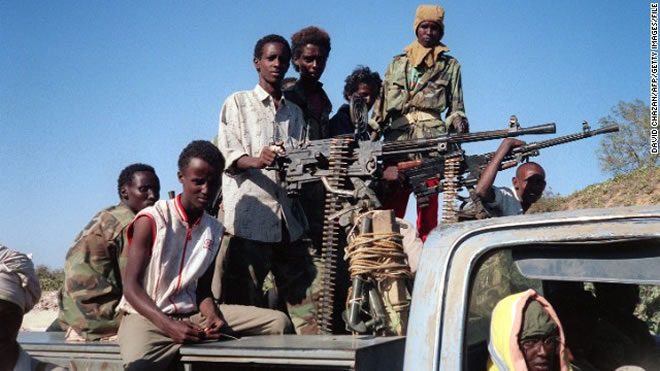
Tuesday, July 05, 2016

Somalia is heading for anarchy. Two troop-contributing countries have threatened to pull out of the African Union Mission to Somalia, but the international community appears indifferent.
Uganda and Kenya say they will withdraw their troops from Somalia, a move that would be a victory for Al Shabaab, who are getting stronger even as the African peacekeepers maintain that their effectiveness has been weakened.
But it is a fact that Shabaab attacks in the capital Mogadishu have increased in frequency and intensity. Meanwhile, the European Union has cut its $200 million annual funding by 20 per cent due to what insiders say is lack of accountability by Amisom and the troop-contributing countries, who have allegedly inflated their troop levels.
Already, the US State Department has issued a travel advisory against Kenya, asking its citizens not to travel to Lamu, Nairobi’s Eastleigh neighbourhood and the country’s northeastern counties.
The campaign against Al Shabaab is suffering from donor fatigue, an unaccountable Amisom, demoralised peacekeepers, a donor-dependent African Union and the fact that Kenya and Uganda are facing domestic pressure to withdraw from Somalia due to high casualties.
Al Shabaab have made it clear that they are planning to disrupt the election, scuttling the gains Somalia has made since September 2012, when President Hassan Sheikh Mohamud was elected with huge support from the international community.
Uganda — the largest troop contributor — says that it will pull out 6,200 out of the 22,100 soldiers it has stationed in the country. Chief of Defence Forces General Katumba Wamala says that the stakeholders have already been informed that Uganda will pull out next year after being in Somalia since 2007.
Uganda’s Parliamentary Committee on Defence and Internal Affairs had also in April raised similar concerns over the cuts in funding, the delays in payment of soldiers who go as many as four months without getting paid, and the non-compensation for use of military hardware.
Uganda’s withdrawal would be a major blow to the campaign against Al Shabaab, who are likely to gain in confidence and step up their attacks against regional and international interests.
Kenya — which entered Somalia in October 2011 and has 3,700 troops there — is also threatening to withdraw, with President Uhuru Kenyatta complaining that the international community is not providing sufficient funding and equipment to sustain the war against Al Shabaab.
President Kenyatta is concerned that the gap left by the EU’s 20 per cent cut is too huge to be met by troop-contributing countries and has urged the UN to step in.
The UN Security Council should look at the Somalia issue seriously at its meeting on July 8 to extend the mandate of Amisom, because the price of increased instability in Somalia will be too great for the region to pay.